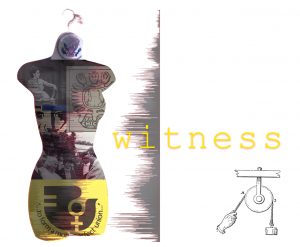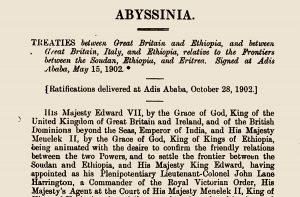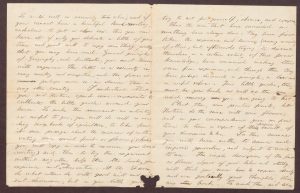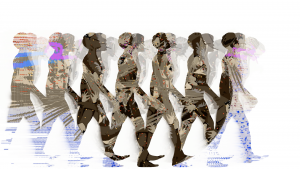It’s hard to believe that DH Afternoons, a forum celebrating digital humanities work being done at the University of Nebraska-Lincoln, is already in its second year. It’s harder yet to believe that the second year is halfway over! Over the past year and a half we have seen great presentations from wonderful scholars in our community, including students, faculty, and staff across campus. This fall we heard from five presenters on topics ranging from artistic output to linguistics and techniques from encoding to pedagogical. In case you missed them, we’ve written up summaries of the presentations below!
For more information about upcoming DH Afternoon events, please see https://cdrh.unl.edu/dh-afternoons.
Telling a Lie, Praxis as Purpose: Teaching Intro to DH Estilo Chingona
Linda Garcia Merchant
Doctoral Student, English and Co-founder of Chicana Por Mi Raza Digital Memory Collective

Linda Garcia Merchant, a doctoral student in English and co-founder of the Chicana Por Mi Raza Digital Memory Collective gave an inspirational talk on her approach to teaching the Introduction to Digital Humanities. She described how she encouraged her students to find failure inspirational rather than negative as they worked around problems and redeveloped ideas on projects in the Nebraska Innovation Studio. We’re pretty sure everyone in the room wanted to take her course after her presentation!
A Rhetorical Reading of the 1902 Edward VII & Menelik II Addis Ababa Treaty
Dr. Ng’ang’a Muchiri
Assistant Professor, English

Dr. Ng’ang’a Muchiri of the English Department spoke about the early stages of his new digital project to compile and analyze colonial land treaties in Africa. Dr. Muchiri is studying how the words used to describe concepts in the treaties, such as “land,” vary from language to language and through time. He hopes to develop a resource decolonizing these treaties by making them more widely available in multiple African languages. His presentation explored some of the difficulties of taking 150 year old treaties and translating them for a modern audience while capturing the original intentions of word choice in the documents.
All that Glitters Will Not Be Encoded: Fun Finds and Fiction in Historical Correspondence
Laura Weakly
Metadata Encoding Specialist, University Libraries

Laura Weakly presented on challenges and variety of encoding letters, postcards, telegrams, and other forms of correspondence. Limitations in the current TEI-XML specification are only compounded when you are trying to describe tricky documents, such as notes on the back of candy wrappers, letters sent to overeager stamp collectors, postcards with glitter, and everybody’s favorite example, a tiny rodent nibble in the shape of a mouse! Attendees left with a healthy respect for the science of correspondence encoding, that’s for sure!
Muybridge I
Dr. Brian Pytlik Zillig, Digital Initiatives Librarian, University Libraries
Dr. Stephen Ramsay, Susan J. Rosowski Associate University Professor, English

A culmination of years of experimentation with SVG and music composition methods, “Muybridge I” is an art piece composed of animations powered by visualization software built by Dr. Brian Pytlik Zillig and music scored by Dr. Stephen Ramsay. “Muybridge I” explores human movement, inspired by the work of photographer Eadward Muybridge. Is it titled “Muybridge I” because there will be a “Muybridge II?” Perhaps we’ll have an answer for you at a future DH Afternoons!